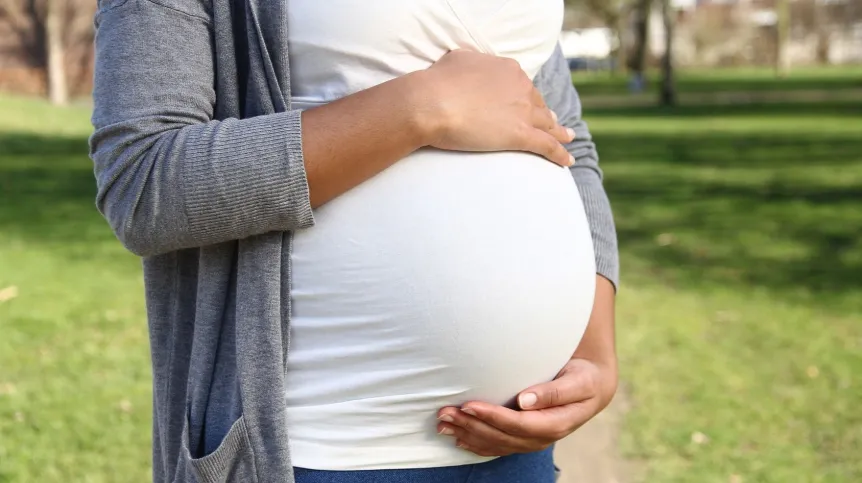
Polish scientists working on placental cell lines are working on deciphering the formation mechanism of pre-eclampsia, a disease that threatens the life of the mother and her child and can prevents women from delivering pregnancy or lead to preterm delivery. The publication on this subject was awarded jointly by the rectors of two Łódź universities.
Pre-eclampsia, formerly called toxemia, may be the result of abnormal formation and development of the placenta. Improperly nourished and oxygenated cells of the placenta secrete many substances into the mother's bloodstream, triggering a strong inflammatory reaction in the woman's body and leading to the development of hypertension.
The mechanism (signalling pathway) that occurs in placental cells only during pregnancy complicated by pre-eclampsia has been identified by researchers from the Medical University of Lodz: Dr. Agata Sakowicz, Michalina Bralewska, Dominika E. Habrowska-Górczyńska, Professor Agnieszka W. Piastowska-Ciesielska and Dr. Tadeusz Pietrucha, as well as Dr. Bartosz Sakowicz from the Lodz University of Technology. An paper on this topic was published in the International Journal of Molecular Sciences.
The researchers working in the project financed by the National Science Centre conducted many experiments on a commercially available cell line, the cells of which are derived from the placenta. The analysis of the results was carried out at the Lodz University of Technology. In the next phase of the research, the scientists will check which drugs affect this signalling pathway and whether they can be considered as therapeutics in \the prevention or treatment of pre-eclampsia.
HYPERTENSION DUE TO STRONG INFLAMMATORY REACTION
Dr. Agata Sakowicz explains that although the first descriptions of the symptoms of pre-eclampsia come from ancient times, the pathomechanism of this disease is still unknown and we cannot effectively prevent its occurrence.
Pre-eclampsia affects as many as 5-10 percent of all pregnant women and poses a serious threat to the life of the mother and her child. The high risk group includes women diagnosed with hypertension or diabetes before pregnancy, those who are 35 or older, those who developed hypertension during a previous pregnancy, and those treated for autoimmune diseases.
High blood pressure (above 140/90 mmHg) usually begins after 20 weeks of pregnancy in pregnant women previously not treated for cardiological reasons. It is often accompanied by a significant amount of protein in the urine. A doctor may also diagnose pre-eclampsia when a woman with hypertension has an increased creatinine concentration (above 1.1 mg/dl), concentration of liver tests double the upper reference value, the platelet count below 100,000/mm3, or when swelling and neurological disorders appear.
C-SECTION IS NOT THE WORST THAT CAN HAPPEN
Doctors try to lower and stabilize blood pressure, but according to Dr. Sakowicz admits, treatment is unfortunately usually ineffective and doctors decide to terminate pregnancy early by caesarean section in order to save the life of the woman and her child. Despite this, about 27 percent children die and the remainder may have serious health consequences later in life.
'A thorough understanding of the pathomechanism of pre-eclampsia will allow to design drugs that could allow to either effectively prevent the occurrence of pre-eclampsia or combat its symptoms, allowing a pregnant woman to deliver pregnancy normally', believes Dr. Sakowicz.
The paper describes the results of research carried out on a commercially available line, the cells of which are derived from the placenta. HTR8/SVneo cells were cultured under conditions simulating uterine conditions in a pregnant woman during pregnancy with pre-eclampsia.
The team will receive PLN 40,000 for the publication combining computer science, medical sciences as well as chemical and pharmaceutical sciences.
Find out more about pre-eclampsia and the results of the project: http://preeclampsia.eu
PAP - Science in Poland, Karolina Duszczyk
kol/ agt/ kap/
tr. RL













